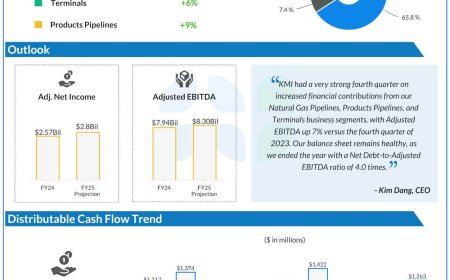Legal Considerations Every HR Professional Should Know
Human Resource Professionals navigate through a very complicated land of legal requirements and regulations. While the full understanding of the legal factors is not only for following the law and avoiding contraventions, but also intended to help facilitate the ease of establishment of a productive workplace. The article below explores the key legal considerations with […] The post Legal Considerations Every HR Professional Should Know appeared first on Insights Success.

Human Resource Professionals navigate through a very complicated land of legal requirements and regulations. While the full understanding of the legal factors is not only for following the law and avoiding contraventions, but also intended to help facilitate the ease of establishment of a productive workplace.
The article below explores the key legal considerations with which an HR professional needs to be familiar and the implications that they bear on a day-to-day basis.
The Basics of Employment Law
First and foremost, one needs to understand the basics of employment law that governs the relationship between employers and employees. Employment law is a broad array of statutes and regulations governing how employees are hired, managed, and terminated. Some of the key legislation includes the Fair Labor Standards Act (FLSA), which regulates minimum wage and overtime pay, and the Occupational Safety and Health Act (OSHA), which aims to ensure safe working conditions.
HR professionals should ensure that their organizations comply with federal, state, and local labor laws. Failure to do so can lead to very harsh monetary sanctions and reputation loss for the organization. Repeated legal compliance training and updates become a necessary step in helping the organization mitigate risks presented by violations of employment laws.
Anti-Discrimination Laws
Another important area of legal consideration includes anti-discrimination laws. Such laws protect employees from being discriminated against in the workplace due to race, color, religion, sex, national origin, age, disability, or genetic information. These laws are enforced by the Equal Employment Opportunity Commission and include the Civil Rights Act, the Age Discrimination in Employment Act, and the Americans with Disabilities Act.
Human Resources specialists play an important role in establishing policies that make the workplace diversified and non-discriminative. They must ensure the hiring practices are fair and non-discriminatory. In this way, all employees will succeed at work. There must also be a course of training programs done with employees on discrimination and harassment. This helps to set an environment of respect and equality.
Wage and Hour Laws
The next very important area of legalities in HR is that of wage and hour. An employee needs to be classified as exempt or non-exempt under the FLSA. The exempt ones don’t receive overtime pay; instead, the non-exempt employees are paid for any work done during overtime hours. Misclassification may leave an employer with a very steep price in terms of back pay for overtime and fines.
HR professionals are also regulated by minimum wage laws, which have significant differences from state to state and even city to city. It is important that the organization keeps up-to-date with these regulations in order to ensure that the pay practices of the organization remain compliant.
Compensation packages should be reviewed periodically to identify errors and correct them before the problems become full-blown issues.
Health and Safety Regulations
Another critical component of legal considerations in HR is workplace safety. OSHA sets safety standards that employers are expected to follow in the protection of their employees. HR professionals have to ensure that their workplace is complying with these regulations, carrying out regular safety training and audits to identify any potential hazards.
Making it a culture of safety may, aside from compliance with governmental laws, encourage employees not to fear reporting unsafe situations because of retaliation; in addition, HR should also lay out clear, established procedure about reporting and addressing problems and matters on safety. From such influences, it can consequently modify the workplace safety along with the attitude of people inside it.
Employee’s Rights Towards Privacy
The above context today reflects information gathering and sharing with and regarding the rights through digitization communication. Hence, their awareness serves an important role for such workers involved with the workforce or an organization. Now, such a balance regarding human performance monitoring without invasion over personal affairs of any employee by Human resource professionals needs to be found. Besides this, various acts such as HIPPA and FERPA prohibit strict rules regarding the collection of such information from the employees through those various systems of organizations.
Policies on use of technology in the workplace, for example, monitoring email and internet usage, must be clear. This will allow employees to know what information is being collected and what the purpose of such collection is, thus promoting trust and respect for the law. Further, HR must educate the employee about his rights concerning privacy and data protection.
Labor Relations and Unions
For organizations with unionized employees, there is a need to understand labor relations laws. The NLRA protects employees’ rights to organize and engage in collective bargaining. Therefore, HR professionals should be well-equipped with the regulations to manage relationships with unions and ensure compliance.
This would establish open lines of communication with the union representatives, and hence there will be disputes and a working relationship that is mutually cooperative. The HR should proactively seek ways to solve employee grievances because issues that are not addressed may snowball into more significant problems that cause disturbance in the workplace.
In a nutshell, the legal landscape of human resources is complex and intricate. The HR professionals would be the first to assure that the organizations they belong to comply with the gamut of laws and regulations ranging from employment and anti-discrimination laws to health and safety standards. Informed about the statutory requirements and effective policies and practices, HR can help to diminish risks and create a wholesome work environment.
It is not just compliance but promoting fairness, safety, and respect at the workplace. Being proactive about legal compliance will certainly enhance employee satisfaction and organization stability, making the organization a thriving environment for stakeholders. For HR professionals, it would be very important to keep educating oneself on changing laws that dictate employment law.
The post Legal Considerations Every HR Professional Should Know appeared first on Insights Success.











































